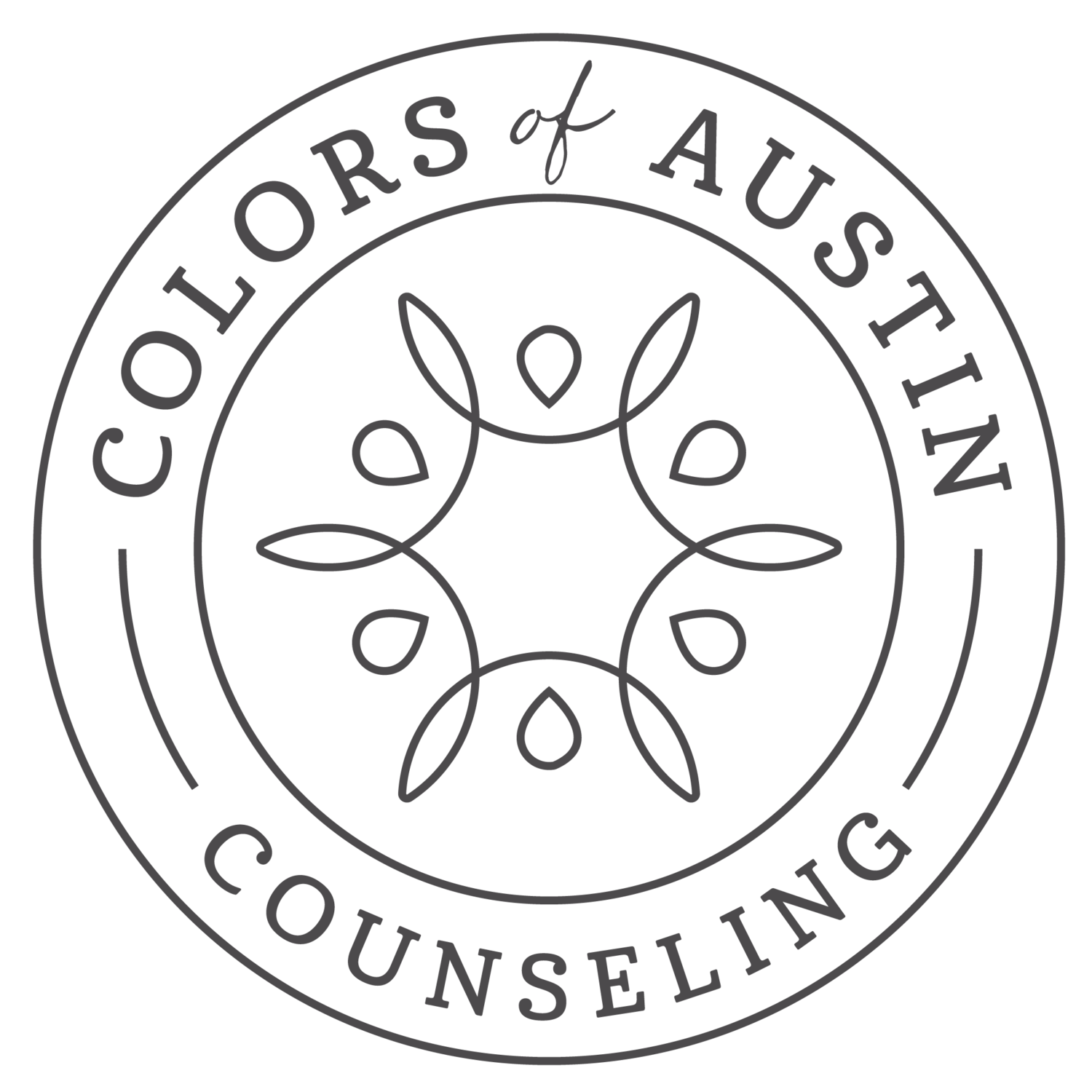Invisibility, Normativity, and Parenting
Written by Sandra Olarte-Hayes LCSW, Director of Equity
This is going to be a more vulnerable post than I am used to. Deep breath. I’m going to talk about normativity, invisibility, and my family.
As of this week, my home is now licensed and ready to welcome a foster child. It’s been an almost two year-long process and now that my partner and I are here, we could get the call at any moment. I’ve shared this news with all of my clients and they have each been wildly supportive. They have asked beautiful and profoundly thought-provoking questions and I am grateful.
I also just attended what feels like my millionth baby shower, many of which I have helped plan and host. Our society has clear rituals to honor the spiritual, emotional, and logistical transition that is becoming a parent. We throw baby showers. We sign up for meal trains. Additionally, my friend group often plans trips or vacations (to say goodbye to all of that free time) and one person in our group likes to host “motherhood blessings” to honor a woman’s transition into motherhood. In this post, I’m going to focus on one aspect of non-normative parenting that feels present for me right now. I don’t plan on delving too much into the heteronormativity and gendered nature of these rituals, nor the messages they send to people without children, but know that I see that too.
When someone becomes a parent, the people who love them tend to ask questions and express curiosity. They offer support and celebrate the arrival of a child. There is often excitement and joy. And yet in my partner’s and my transition to parenthood, our community has been notably absent. There have been few questions, few offers of support, and a lack of interest and awareness around my process. This frustrating pattern culminated during the week I was originally scheduled to receive a placement when I was asked to share stories about my own relationship to mothering and the generational cycles I want to break at a motherhood blessing ceremony. As I read over the agenda for the ceremony it became clear that neither the birthing friend being celebrated, the host, nor most of the mothers in attendance had thought to honor my experience as a soon to be mother as well. It struck me, that the only way to have value in this “motherhood” community was to have grown a child in my uterus. I chose not to attend.
I am sitting with the reality of this invisibility and trying to make sense of it. My partner and I really do want and need the love and support of our community. When I tried to address the discrepancies I felt with our closest people and talk about implicit bias I observed, I’ve gotten some curious and surprising responses. I have paraphrased a few of them here:
“I didn’t think to celebrate you the way I do other parents because you don’t know how long the kid will be with you. They might not be with you forever.“
“We might not connect with them. They might have a lot of problems. You might not even like them. We didn’t want to celebrate until we knew what the child was like.”
“I thought that we would celebrate once the child was placed with you. I don’t know how I am willing to support you until I know if i connect with the child and if they connect with me”
“I’m not treating you differently because you're fostering vs giving birth. I’m just in a self-involved place right now”
“Well your child isn’t going to be a baby”
“I can’t relate to it so I can’t be supportive or feel excited about it the way I could if I could relate”
“I can’t celebrate or honor you as parents because I don’t know this child.” When it was pointed out that we still celebrate parents even though we never know a child before they are born, the response was “I do know them, because I know the parents”
“I just didn’t know the process and when it was happening. It isn’t my fault because this is different from what I know and it’s so confusing”
“I feel like you are attacking me. I don’t have any bias. I celebrate all families.”
“The only point of a shower is to make people buy you things. If you don’t need things then why would we do anything like that for you?”
“I have been really supportive but when I’ve asked what I can buy you, I feel that you are the one putting up walls and holding me at arms length” (we don’t know anything about this child yet so my response has consistently been that we can’t start collecting objects until we know their age, gender, interests etc. and because we want them to have choice in what they wear and how their room is decorated)
“It was just flawed wording not bias”
“You had said that deep down you wished you had more time before such a big change and your partner felt 100% ready with no hesitations so I assumed it might not happen because you weren’t totally in agreement. That is why I didn’t offer support”
“You’re not supposed to celebrate pregnant women too early because they might miscarry so I didn’t want to celebrate you in case it didn’t end up happening and you never got a placement”
“Birthing women have needs and those needs are important. I was honoring the paths and needs of birthing women not invalidating other paths to parenthood”
Yes, these are real responses from people I love deeply. People working towards social justice, nonprofit leaders, people with intersectional marginalized identities, board members, folks in social justice and anti-racist mom groups, and self-identified progressives. These responses espouse the belief that you are only a true parent, one worthy of celebration and support, if:
your child is a baby and is with you from day one
your child is with you forever and not temporarily
you know everything that can be known about a child’s history and context
you, your partner, (or maybe even a surrogate) are pregnant and birthing
the child has a high chance of being likable and there is a low chance that they will have behavioral challenges or trauma
the other person can see themselves in your path to parenthood
you like your child and they aren’t too difficult to connect with
you are the child’s first and only parent/s
you need gifts and materials and you know what they are already
These deeply held biases around who gets treated as a real family and who does not aren’t new. Neither are defensiveness and fragility. I experienced them as a child growing up in a nontraditional family. Queer families; single people; couples without children for whatever reason; aunties, uncles, and grandparents raising their loved ones’ children; and all those who create family in non-normative ways have experienced the impact of these implicit biases. Their validity as parents, their joys, and their griefs have long gone unrecognized. Becoming a parent through any path is incredibly challenging. It is isolating, identity-shattering, transformative, and unbelievably difficult. I am not saying that normative parenting journeys aren’t hard. Nor will I say that my experience is worse than the discrimination and invisibility faced by people without children. But I do want to highlight that there is something uniquely challenging about watching your loved ones excitedly ask questions, express joy, support, and celebrate the journeys of normative parents yet shift uncomfortably, look away, and shut down when your experience comes up.
It felt important to talk about this experience because of how rarely normativity and invisibility in the parenting community is talked about. During these discussions, I scoured google to find resources I could share about how implicit bias operates around which families we support and recognize. I found many articles about how to raise children without implicitly enforcing gender norms. Surprisingly to me, I found very little content focused on how implicit bias operates within parenting communities and between parents in normative and non-normative families. Yet, the loneliness and lack of support is obvious in my conversations with friends from non-normative families, like the one I’ll soon be a parent in.
I know with certainty that the people who said the things listed above love me. They would be outraged and deeply protective if another person had diminished my experience in these ways. I know they want to support me, but it seems there’s some barrier that makes it hard to see me and how I choose to build my family as valid. I do have hope. Through these hard conversations, I am confident that they are learning and growing. I sure know I am. I do have confidence this journey will bring us closer.
If you want more information about the experience of foster parenting and how to support foster parents, two good starting points are this essay about What Foster Parents Wish Other People Knew and this article by Amy Morin about The Unique Challenges Foster Families Face. To read the other posts in this series, check out October 2022’s post titled Implicit Bias and the Body and January 2023’s post titled I Still Don’t Matter: An Update On Foster Parenting In a Normative World.



